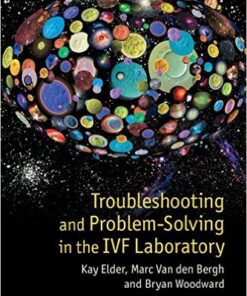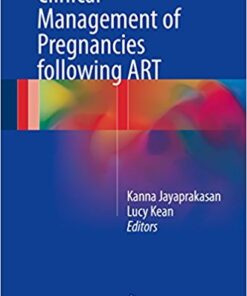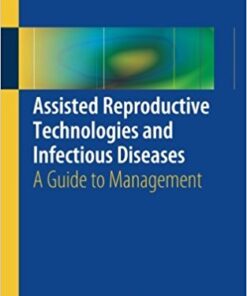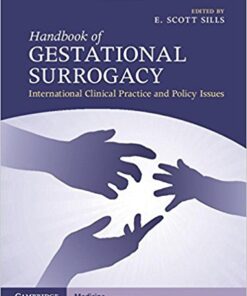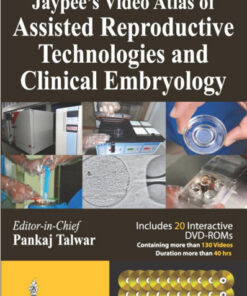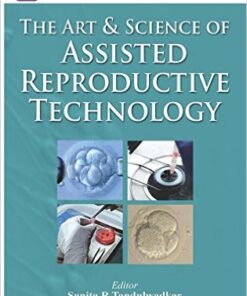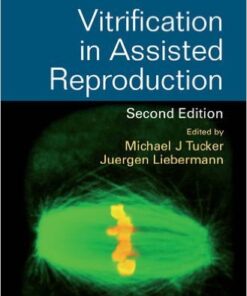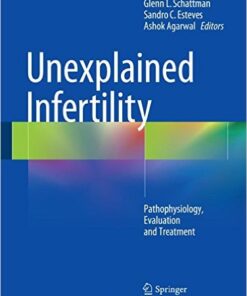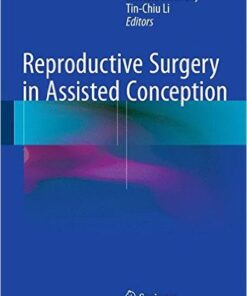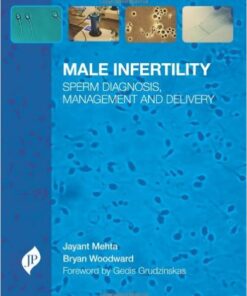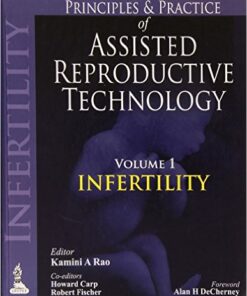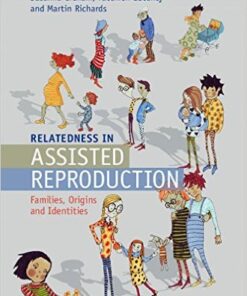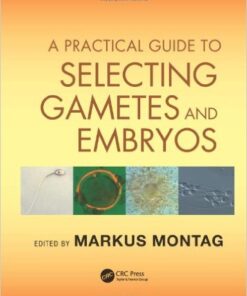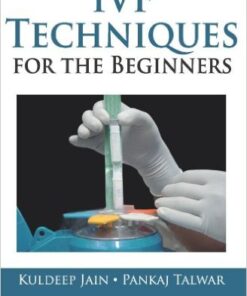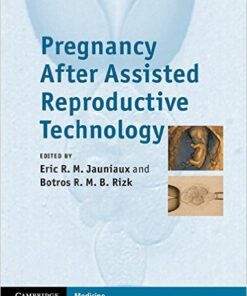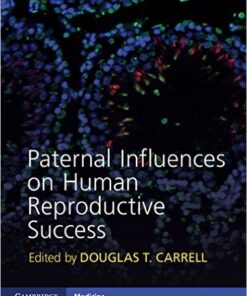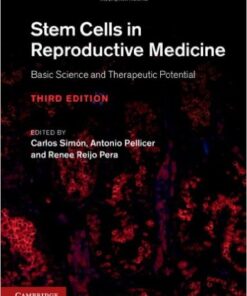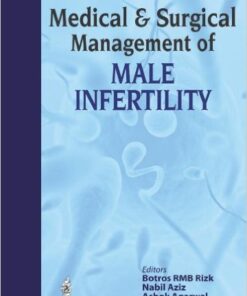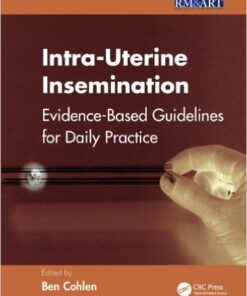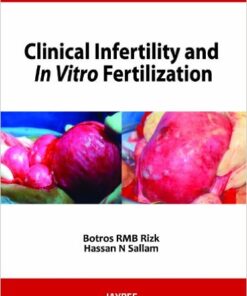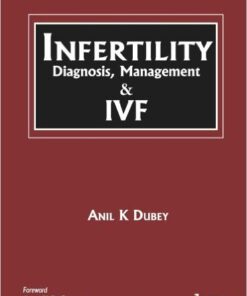INFERTILITY & ASSISTED REPRODUCTIVE TECHNIQUES
INFERTILITY & ASSISTED REPRODUCTIVE TECHNIQUES
INFERTILITY & ASSISTED REPRODUCTIVE TECHNIQUES
Immune Infertility 2016 : Impact of Immune Reactions on Human Infertility, 2nd Edition
INFERTILITY & ASSISTED REPRODUCTIVE TECHNIQUES
Gonadal Tissue Cryopreservation in Fertility Preservation 2016
INFERTILITY & ASSISTED REPRODUCTIVE TECHNIQUES
Exercise and Human Reproduction 2016 : Induced Fertility Disorders and Possible Therapies
INFERTILITY & ASSISTED REPRODUCTIVE TECHNIQUES
INFERTILITY & ASSISTED REPRODUCTIVE TECHNIQUES
Assisted Reproductive Technologies and Infectious Diseases 2016 : A Guide to Management
INFERTILITY & ASSISTED REPRODUCTIVE TECHNIQUES
Handbook of Gestational Surrogacy : International Clinical Practice and Policy Issues
INFERTILITY & ASSISTED REPRODUCTIVE TECHNIQUES
INFERTILITY & ASSISTED REPRODUCTIVE TECHNIQUES
INFERTILITY & ASSISTED REPRODUCTIVE TECHNIQUES
Video Atlas in Assisted Reproductive Technologies and Clinical Embryology 1st Edition
INFERTILITY & ASSISTED REPRODUCTIVE TECHNIQUES
The Art & Science of Assisted Reproductive Technology 1st Edition
INFERTILITY & ASSISTED REPRODUCTIVE TECHNIQUES
INFERTILITY & ASSISTED REPRODUCTIVE TECHNIQUES
INFERTILITY & ASSISTED REPRODUCTIVE TECHNIQUES
Unexplained Infertility: Pathophysiology, Evaluation and Treatment 2015th Edition
INFERTILITY & ASSISTED REPRODUCTIVE TECHNIQUES
INFERTILITY & ASSISTED REPRODUCTIVE TECHNIQUES
Obesity and Fertility: A Practical Guide for Clinicians 2015th Edition
INFERTILITY & ASSISTED REPRODUCTIVE TECHNIQUES
Male Infertility: Sperm Diagnosis, Management and Delivery 1st Edition
INFERTILITY & ASSISTED REPRODUCTIVE TECHNIQUES
Principles and Practice of Assisted Reproductive Technology 1st Edition
INFERTILITY & ASSISTED REPRODUCTIVE TECHNIQUES
Relatedness in Assisted Reproduction: Families, Origins and Identities
INFERTILITY & ASSISTED REPRODUCTIVE TECHNIQUES
Non-Invasive Sperm Selection for In Vitro Fertilization: Novel Concepts and Methods 2015th Edition
INFERTILITY & ASSISTED REPRODUCTIVE TECHNIQUES
INFERTILITY & ASSISTED REPRODUCTIVE TECHNIQUES
INFERTILITY & ASSISTED REPRODUCTIVE TECHNIQUES
Pregnancy After Assisted Reproductive Technology 1st Edition
INFERTILITY & ASSISTED REPRODUCTIVE TECHNIQUES
Paternal Influences on Human Reproductive Success 1st Edition
INFERTILITY & ASSISTED REPRODUCTIVE TECHNIQUES
Stem Cells in Reproductive Medicine: Basic Science and Therapeutic Potential 3rd Edition
INFERTILITY & ASSISTED REPRODUCTIVE TECHNIQUES
Medical and Surgical Management of Male Infertility 1st Edition
INFERTILITY & ASSISTED REPRODUCTIVE TECHNIQUES
INFERTILITY & ASSISTED REPRODUCTIVE TECHNIQUES
INFERTILITY & ASSISTED REPRODUCTIVE TECHNIQUES
Introduction
This guide provides couples with an in-depth understanding of infertility and assisted reproductive techniques (ART). It covers the causes of infertility, available treatments, and the emotional and financial implications of ART. With this comprehensive guide, couples can make informed decisions about their fertility journey and gain a better understanding of the options available to them.
What is Infertility and How is it Diagnosed?
Exploring Assisted Reproductive Techniques: In Vitro Fertilization, Intrauterine Insemination, and More
Exploring Assisted Reproductive Techniques (ART) is an important step for couples who are struggling to conceive. ART includes a variety of treatments that can help couples achieve pregnancy, such as in vitro fertilization (IVF), intrauterine insemination (IUI), and more.
In vitro fertilization (IVF) is one of the most common forms of ART. During IVF, eggs are retrieved from the woman’s ovaries and fertilized with sperm in a laboratory setting. The resulting embryos are then transferred into the woman’s uterus, where they can implant and develop into a healthy pregnancy. IVF is often used when other fertility treatments have failed or when there are issues with the woman’s fallopian tubes.
Intrauterine insemination (IUI) is another form of ART. During IUI, sperm is inserted directly into the woman’s uterus, bypassing the cervix. This increases the chances of conception by increasing the number of sperm that reach the egg. IUI is often used when there are issues with the man’s sperm count or motility.
Other forms of ART include gamete intrafallopian transfer (GIFT), zygote intrafallopian transfer (ZIFT), and intracytoplasmic sperm injection (ICSI). GIFT involves transferring both the egg and sperm into the woman’s fallopian tube, where fertilization can occur naturally. ZIFT involves transferring a single fertilized egg into the woman’s fallopian tube. ICSI involves injecting a single sperm directly into the egg in a laboratory setting.
No matter which form of ART is chosen, it is important to discuss all options with a fertility specialist. Each form of ART has its own risks and benefits, and it is important to understand these before making a decision. With the right treatment plan, couples can increase their chances of achieving a successful pregnancy.
Understanding the Costs and Insurance Coverage of Assisted Reproductive Techniques
Preparing for Treatment: Emotional and Physical Considerations
Preparing for treatment is an important step in the recovery process. It requires both emotional and physical considerations to ensure that you are ready to begin your journey towards healing.
Emotionally, it is important to be aware of any feelings of fear or anxiety that may arise as you prepare for treatment. It is normal to feel scared or overwhelmed when facing a new challenge, but it is important to remember that you are not alone. Talking to a trusted friend or family member can help to alleviate some of these feelings. Additionally, seeking out support groups or therapy can provide a safe space to express your emotions and gain insight into how to best manage them.
Physically, it is important to make sure that you are taking care of yourself before beginning treatment. Eating a balanced diet, exercising regularly, and getting enough sleep are all essential components of self-care. Additionally, it is important to make sure that you have access to any medications or treatments that you may need during your recovery. If you are unsure of what you will need, speak with your doctor or therapist to get more information.
Finally, it is important to create a plan for how you will manage your time during treatment. This could include setting aside time for self-care activities such as yoga or meditation, scheduling regular check-ins with friends and family, and making sure that you have enough time to rest and relax.
Preparing for treatment can be a daunting task, but it is an important step in the recovery process. By taking the time to consider both emotional and physical considerations, you can ensure that you are ready to begin your journey towards healing.
Navigating the Legal Aspects of Assisted Reproductive Techniques
Navigating the legal aspects of assisted reproductive techniques (ART) can be a complex and daunting task. ART is a broad term that encompasses a variety of medical procedures used to help individuals or couples conceive a child. These techniques include in vitro fertilization (IVF), artificial insemination, egg donation, and surrogacy. Each of these procedures has its own set of legal considerations that must be taken into account before proceeding.
The first step in navigating the legal aspects of ART is to understand the laws in your state. Every state has different laws governing ART, so it’s important to research the specific regulations in your area. Some states have laws that prohibit certain types of ART, while others may require certain steps to be taken before proceeding with a procedure. It’s also important to understand the implications of any contracts you may enter into related to ART.
In addition to researching the laws in your state, it’s also important to consult with an attorney who specializes in ART law. An experienced attorney can provide guidance on the legal implications of each type of ART and help you navigate the process. They can also help you draft contracts and other documents related to ART, such as donor agreements and surrogacy contracts.
It’s also important to consider the ethical implications of ART. Many people have strong opinions about the use of ART, and it’s important to take those views into consideration when making decisions about the procedure. Additionally, it’s important to consider the potential psychological and emotional effects of ART on both the intended parents and the child.
Finally, it’s important to understand the financial implications of ART. The cost of ART can vary greatly depending on the type of procedure and the clinic you choose. It’s important to research the costs associated with each type of ART and make sure you are comfortable with the financial commitment before proceeding.
Navigating the legal aspects of ART can be a complex and intimidating process. However, with the right information and guidance, it is possible to make informed decisions about the procedure. By understanding the laws in your state, consulting with an experienced attorney, considering the ethical implications of ART, and researching the financial costs associated with the procedure, you can ensure that you make the best decision for yourself and your family.
Conclusion
In conclusion, infertility can be a difficult and emotional journey for couples. Understanding the causes of infertility and the available assisted reproductive techniques can help couples make informed decisions about their fertility options. With the right support and guidance, couples can find the best treatment plan to help them achieve their dream of having a family.

